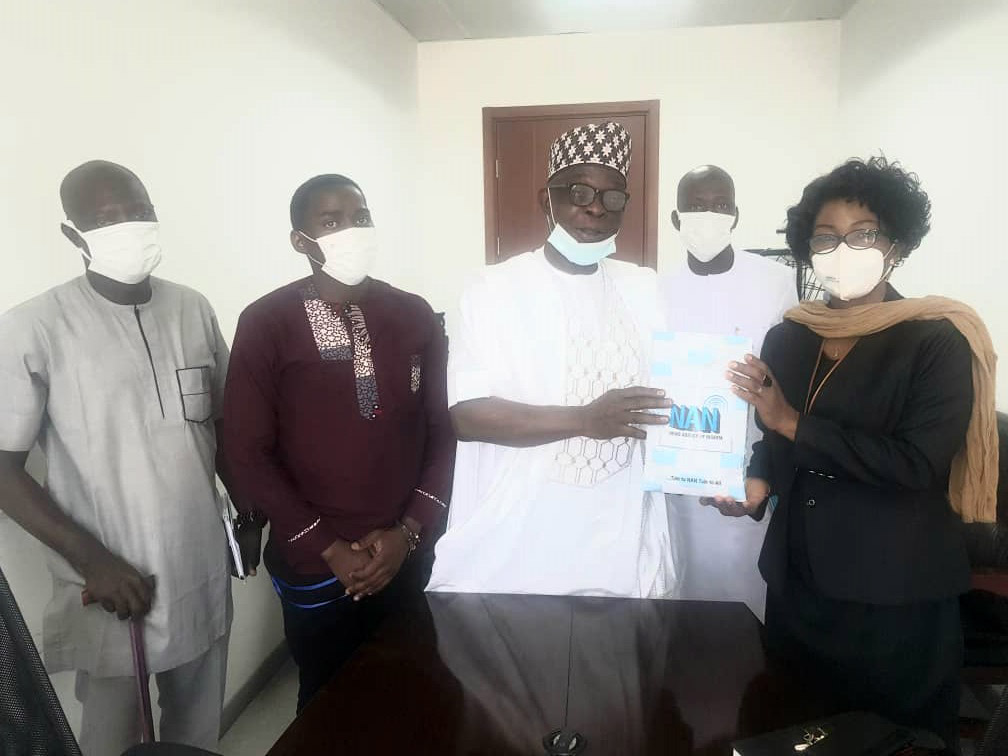Business
Limited Coverage, Weak Targeting, Bane Of Nigeria’s Social Safety Net – IMF

The International Monetary Fund (IMF) has stated that Nigeria’s social safety net, which was created to support poor and vulnerable people in the country, currently suffers from limited coverage and weak targeting.
Stating this in its “Nigeria Staff Report for the 2021 Article IV Consultation” report, the Washington-based lender said, “Nigeria needs to improve coverage and efficiency of its social assistance programmes.
“As of 2018, around a fifth of the vulnerable population (the bottom 60 per cent of the population) receives some kind of social assistance with a small fraction receiving cash transfers”, the report said.
It continued that “Despite recent improvements, for example, adding one million households to the social registry, Nigeria’s social safety net still suffers from limited coverage and weak targeting.”
The fund, therefore, recommended a cumulative increase in social spending by about one per cent of the Gross Domestic Product for 2022 to 2026.
“The authorities, in collaboration with the World Bank, are developing a well-targeted cash transfer program to support those affected by the removal of fuel subsidies and strengthen the social protection systems.
“Measures include developing and utilising the National Social Registry for adequate beneficiary selection, improving coordination and integration between state and national registers, and establishing a strong information management system.
“Staff supported these measures and recommended increasing social spending by up to 1 per cent of GDP cumulatively for 2022-2026 (around 0.2 per cent of GDP each year) for well-targeted programmes”, it stated.
Recall that President Muhammadu Buhari had early this month said the poor and vulnerable in Nigeria remained a top priority for protection and lifting from the poverty cycle.
He also said his regime would sustain social safety nets, while expanding access to education and opportunities.
Also, the National Coordinator, National Social Safety Nets Coordinating Office (NASSCO), Mr Apera Iorwa, recently told The Tide’s source that the Federal Government disbursed about $300m to the poor and vulnerable in its National Social Register through N5,000 cash transfers in four years.
The agency, which is under the Federal Ministry of Humanitarian Affairs, Disaster Management and Social Development, coordinates the National Social Safety Net Programme.
NASSCO was established in 2016 by the Federal Government and the World Bank, to strengthen social safety nets and social protection system in Nigeria in order to help end extreme poverty and promote shared prosperity.
The World Bank offered a credit of $500m to support the social safety net programme, which will end by June 2022.
Iorwa disclosed that another $800m had been approved by the World Bank to extend the support programme to 2024 in a way that would benefit 8.5 million more Nigerians.
“We have been able to secure an additional $800m facility from the World Bank to answer the most pressing issues of the hike in prices occasioned by the high rate of inflation. The $800m facility will start in February, overlapping with this current programme in June.
“This current programme in June is paying only $2m till June 30. The $800m facility will take over and continue to pay this $2m till 2024. We will pay an additional 8.5 million people through the rapid response register for the urban poor. Since the urban poor is an emergency fund transfer, this 8.5 million people will be paid from six months to only one year, N5,000 monthly”, he said.
Transport
Automated Points Concession : FAAN Workers Gave 72hrs To Revise Decisions In PH

Transport
FAAN Announces Pick-Up Points for Go-Cashless Cards

Business
Fidelity Bank To Empower Women With Sustainable Entrepreneurship Skills, HAP2.0
-
Politics2 days ago
2027: NIGERIANS FAULT INEC ON DIGITAL MEMBERSHIP REGISTER DIRECTIVE
-

 Environment2 days ago
Environment2 days agoLAWMA Director Says Sweeping Reforms Have Improved Waste Collection
-
Politics2 days ago
LP Crisis: Ex-NWC Member Dumps Dumps Abure Faction
-

 Sports2 days ago
Sports2 days agoAbia Not Sure To Secure continental Ticket
-

 Politics2 days ago
Politics2 days agoUmahi Dismisses Allegations On Social Media, Insists On Projects Delivery
-

 Transport2 days ago
Transport2 days agoFAAN Announces Pick-Up Points for Go-Cashless Cards
-
Sports2 days ago
La Liga: Yamal Records First Career Hat-trick
-

 Sports2 days ago
Sports2 days agoCity Survive Leeds’ Challenge At Elland Road

